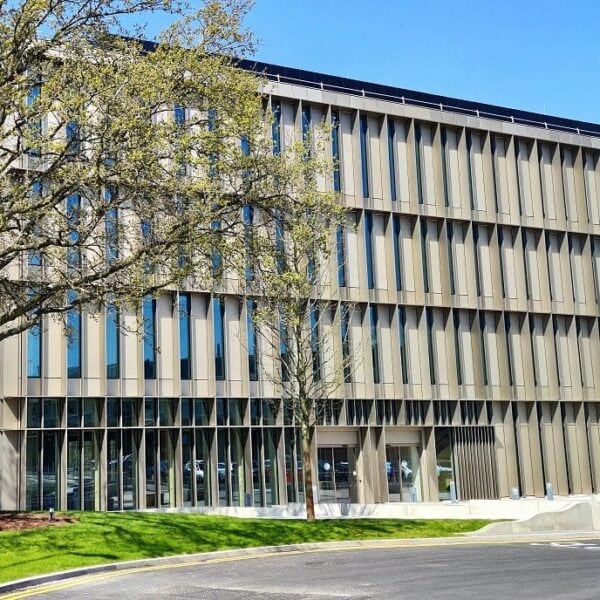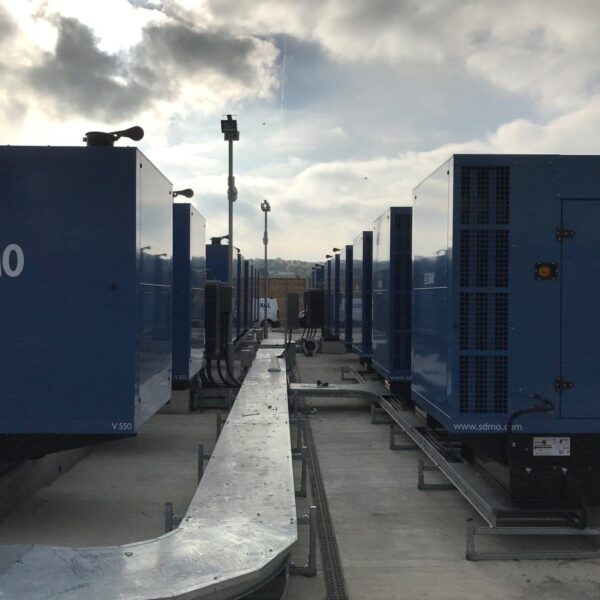In their in-depth ‘Football Stadiums: Technical recommendations and requirements’ [i] guide, FIFA writes: “The delaying or cancellation of an event due to the loss of electrical mains is unacceptable. A careful evaluation of the available utility service is crucial, but redundant services are necessary as are back-up and ride-through power sources.”
The severe consequences of such a failure were felt by Dagenham and Redbridge FC, after a power cut caused a home match with Brentford to be postponed. The club, which was looking for League Two promotion at the time, estimated that they lost £50,000 in TV revenue after a local substation developed a fault; a sum that they could not afford to lose.
The response of their utility supplier, EDF Energy, was that customers who rely on power for essential business or commercial reasons should arrange for back-up supplies. As this was the second power cut in the season, the Football League has also sought assurance from the club that they can guarantee their power supply.
Despite its potentially critical impact on a club’s finances and reputation, loss of broadcast coverage is far from the only problem arising from a power outage. Fig.1 below clearly shows FIFA’s view of the services that must be protected, and the level of protection they need. Two alternatives are shown; one in which a back-up utility supply is on standby in case the primary feed fails, and the other where two utility supplies run in parallel.
Commenting on this protection scheme, the guide says; “If the mains fails, the on-site back-up power should start immediately, but there will be a time lag. Consequently, this back-up must include some ride-through capacity while the on-site source(s) start up since field lighting, which is typically high-intensity discharge (HID), will extinguish and require several minutes to re-start and the event broadcast will be interrupted. This ride-through can be provided in several ways, including special generators and uninterruptible power supply (UPS) systems. Back-up power should have the capacity to operate for a minimum of three hours during an outage.”
Football clubs can protect themselves from power outages and their consequences by procuring an integrated power protection system from a reputable, experienced supplier. This should include a fully matched UPS and generator set, and can extend to any associated switchgear; a complete, turnkey solution. The UPS provides the instant ride-through capability, while the generator can provide three hours’ back-up – or more, if needed.
The process should take users through on-site evaluation, recommendation of an optimum solution, supply and installation, battery installation and maintenance, and on to an ongoing support contract which provides both scheduled maintenance and up to 24/7 callout cover if appropriate. Other services can include power supply analysis, load bank testing, replacement batteries, and provision of monitoring and safe shut down software.[/vc_column_text][vc_single_image image=”9596″ img_size=”full” alignment=”center” onclick=”img_link_large” img_link_target=”_blank”][vc_column_text]
Fig.1: Two alternative power protection schemes for football stadium power circuits – FIFA recommendation
[/vc_column_text][vc_column_text]KUP offers a wide range of UPS to suit stadiums of different sizes and power infrastructures. Small, single-phase units are available for applications with power requirements from 7.5kVA, while large, three-phase solutions can be paralleled to deliver up to 3MVA. Parallel redundancy means that availability up to ‘six nines’ is possible. The UPS options are complemented by a choice of single and three-phase standby diesel generators rated from 5kVA to 3MVA, available in open or acoustically-shielded enclosures.
Modern UPSs can be efficiently scaled to the stadium load size, and operate with high electrical efficiency. Capex and Opex are optimised, especially when compared with the consequences and costs of a power outage.[/vc_column_text][vc_separator][vc_column_text]
Contact us for a FREE Site Survey
KUP’s experienced team of engineers are able to provide a free site survey, to offer you a choice of power protection solutions tailored to your requirements and budget.
The free survey is offered during normal working hours, and provided our service network covers the site location.
A typical UPS site survey will last around 1-2 hours depending on the size of the installation. Full recommendations and quotations will be provided after the survey has been completed.
KUP endeavours to assess the following areas during the survey:
- Load size
- Physical location and environment
- Suitability for existing UPS and battery installation
- Delivery route and logistics requirements
- Remote monitoring requirements
- Ongoing maintenance and technical support requirements
- General programme of works and preferred installation timeframe
Reference
[i] https://www.scribd.com/doc/100501692/FIFA-Football-Stadiums-Technical-recommendation-and-requirements-5th-edition
Section 9.1, p166
Also on http://www.fifa.com/mm/document/tournament/competition/51/54/11/stadium_tech_rec_req_guide_to_lighting_en_7306.pdf




